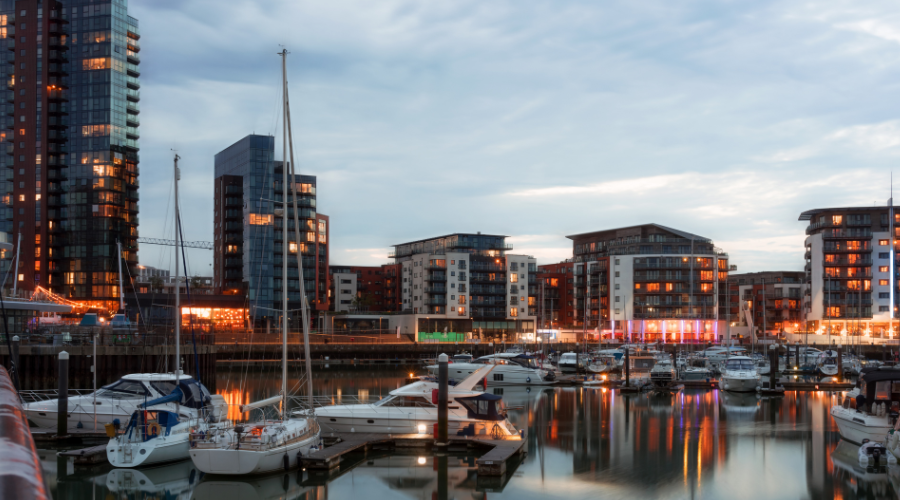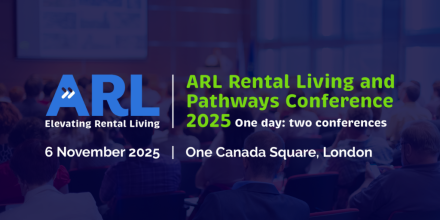Southampton presents a significant opportunity for developers of build-to-rent (BTR) apartments thanks to strong industries and a large student population, according to a new report by national property specialist Centrick and regional data released ahead of industry conference MIPIM in Cannes.
The city has more than 40,000 students and, combined with major shipping and leisure industries, this makes it certainly one to watch as far as BTR development is concerned, says the research.
The Love Where You Live research takes an in-depth look at Britain’s booming build-to-rent (BTR) market, the factors driving its growth, and why some renters and investors are turning their backs on the traditional private rented sector in favour of high quality, purpose-built BTR developments. Centrick, which was established in 2005, specialises in Building & Estate Management, BTR Portfolio Management, PRS Portfolio Management and Professional Service & Valuation in addition to Land, New Homes and Investment services.
Unlike traditional apartment buildings, BTR properties focus on creating engaged, fully rounded communities with amenities and features like screening rooms, private dining facilities, hosting kitchens, residents’ lounges and bookable services built in, says the Love Where You Live research published by national property specialists Centrick.
The study shows that Southampton residents report the longest planned rental tenure in the national study, with 51% of responders planning to stay in their rental property for over 12 months.
Rental values, whilst higher than the national average, are significantly lower than elsewhere in the South East and survey respondents in Southampton reflect this, with the highest percentage of residents paying less than 20% of their monthly income on rent.
Only 27% of Southampton responders claimed they paid 40% or more of their take-home pay on rental payments. This affordability and relatively undeveloped BTR sector could represent a sizeable opportunity for developers looking for South East sites.
Meanwhile, Southampton’s residents are less likely than both the national average and their regional counterparts to enjoy a positive relationship with their neighbours. Some 78.67% of Southampton study respondents stated that they got on “well” or “very well” with their rental community. Whilst this value still suggests positive communities, it is the lowest of all regions in the study and shows a marked gap from the national average of 82.80%.
Engagement also shows gaps within Southampton with only 70% of the study group stating their community is “somewhat” or “very engaged”. Whilst Sotonians may not be currently topping the community charts, their preferences suggest that demand is growing for features that facilitate community with lounges and socialising spaces, and private dining and meeting areas, ranking 4th and 6th respectively.
The Southampton market showed a significant bias towards parking in their importance rankings with this feature ranking second overall, the highest of all regions in the study. Sotonians seemingly only value energy efficiency more highly. While both parking and energy efficiency rank highly, EV charging facilities are comparatively unimportant to this audience with only 1:4 responders willing to pay more for EV charging and ranked 8(12) for importance.
This preference is reflected more intensely within paid-for features, with 46% of the respondents willing to pay more for parking in their rental development. Perhaps unsurprisingly, Southampton responders also showed the lowest levels of satisfaction with the transport links and options in their local area.
According to the report, the combination of energy efficient homes and community features is working, with just 1 in 10 current BTR residents considering going back to the private rented sector.
Energy efficiency has emerged as the most important factor when choosing a new home as renters continue to grapple with the cost of living crisis, says the report.
Over 83% of renters in both BTR and PRS property reported that energy efficiency was important to them in their rental property with the availability of garden space and lounge/socialising space completing the renters top three wish-list. Parking and pet friendliness ranked 4th and 5th respectively says the research.
The research and report focuses on six cities – London, Birmingham, Manchester, Liverpool, Sheffield and Southampton – where BTR is increasing rapidly in popularity with a wide demographic of residents opting to rent instead of buy. The research suggests that renters have significant and varied preferences, with generational and locational trends emerging strongly. Renters show a significant propensity for choice and movement, with over 50% of renters planning to move from their current property within the next 12 months.
Key findings include:
Birmingham – 87% of renters satisfied or very satisfied with current amenities.
Manchester – Most likely to value pet friendliness.
Sheffield – 40% of renters willing to pay more for parking.
London – 88% of renters get on well or very well with the neighbours.
Liverpool – 36% of renters willing to pay more for EV charging facilities.
Southampton – 29% residents planning to stay put for 18+ months.
Centrick founder James Ackrill said:
“In recent years, the residential real estate landscape has witnessed the transformative trend known as Build to Rent housing. This innovative approach to housing investment, construction and management has swiftly emerged as a dynamic and relevant force in the housing market.
“Our objective is to dig into real world trends from real renters and explore the path forward for both those who seek to invest in BTR developments and those who aspire to call them home. This study is driven by the recognition that BTR is more than a mere housing solution; it is a concept that, when well-executed, can redefine the way we relate to the places we live. It carries the potential to create not just spaces, but communities where people feel a genuine connection to their surroundings, fostering a sense of belonging and happiness in their daily lives.”
He added:
“Love Where You Live is more than a research paper; it’s a testament to the transformative power of home, and a celebration of the boundless potential of Build to Rent housing in redefining the way we live, love, and create our lives in the future.”
The study also asked which amenities and features residents would be willing to pay a higher rent for. Parking ranked most highly with 38.69% of responders citing this as the singular feature they would be willing to pay more for. Garden space and energy efficiency also featured highly at 37% and 36% respectively, echoing what respondents cited as their most important features. Gym and fitness facilities and EV charging are cited at positions four and five respectively.
With over 80% of residents surveyed responding that energy efficiency was important or very important, it is obvious that this is the key feature for the majority of renters across both BTR and PRS when considering their next move. In fact, a mere 5.59% of responders stated that energy efficiency was “not important at all”, a testament to the importance of energy costs and sustainability to all residents. Birmingham-based Centrick, which also has offices in London, Manchester, Sheffield, Gerrards Cross and Fareham has grown consistently since its inception by successfully prioritising innovation, expertise, and building trusted relationships with its clients to deliver high quality service and results. First opening its doors in 2005, the agency now has over 23,500 properties across the UK on its books and manages over £3.5 billion in client assets.










